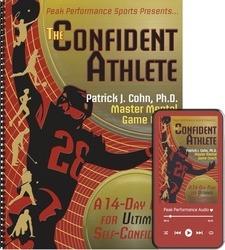Why You Should Avoid Negative Self-Talk
I recently worked with a high school athlete who was plagued by those nasty inner gremlins. You know the type “ that little guy or gal inside your head what would not shut up and kept asking irrelevant questions. This kept my student from developing confidence and playing to his full potential.
I’ll call him Joe. Joe was a very hard-working golfer. He spent hours at the practice tee and green honing his skills. He took a ton of lessons to improve his swing and putting stroke. He was very committed to the game. All of this so he could play well in tournaments.
However, in competition, he did not excel. Why did Joe struggle in competition if he worked so hard in practice and was so dedicated to his sport? Joe could not shake his inner gremlins – voices inside him that told him repeatedly that he would choke under pressure and kept reminding him of his past failures.
As a result, Joe called himself awful names such as you’re a choker – you choke every time under pressure and you’re a poor closer – you can’t get the job done under the heat. All his name calling because he had blown a big lead in one tournament, which he could never forget and let go.
What are inner gremlins? I am not talking about little green men here – I’m talking about the voices of inner doubts, negative beliefs, and negative labels that plague athletes and leave them to wallow in a comfort zone or to crumble under the pressure.
Impact Of Negative Self-Talk
What would happen if you could banish your inner gremlins of the past before the biggest game or performance of your career? Would this help you perform with a better focus and confidence? I would think so.
One thing I am certain about “ an athlete cannot perform up to his or her potential unless I can help him or her uncover and eradicate the gremlins that whisper negative statements at just the wrong time. The first place I start with my students is to help them identify unhealthy beliefs, doubts and strict outcome expectations that undermine performance.
If we don’t address the inner gremlins, the other work we do to improving focus, confidence, and composure will amount to underachievement because the gremlins will override massive amounts of positive thinking.
Do you want to identify and let go of your past gremlins so you can perform your best under pressure? I have a great teleseminar on this topic called I Can Cope! Performing Your Very Best Under Pressure in my online mental training programs along with more than 24 others waiting for you to tune into.
Go check out the topics if you want to increase self-confidence and reduce doubt in sports!
Patrick J. Cohn, Ph.D.,
Related Sports Psychology Articles
- Building Self-Confidence In Sports – Peaksports Video
- How Perfectionism Can Hurt Athletes Self-Confidence
- Proactive vs. Reactive Self-Confidence – Webinar 2
*Subscribe to The Sports Psychology Podcast on iTunes
*Subscribe to The Sports Psychology Podcast on Spotify
Download a free sports psychology report to improve your mental game!
Learn more about our one-on-one mental game coaching.
The Confident Athlete

“The Confident Athlete” consists of 2 audio programs that include 14 days of confidence fueling exercises and a simple to follow workbook that guides you through the 14 days, helps you apply the strategies, and customizes the exercises to your personal needs.
Let me help you put a stop to the confidence leak. You can learn to have greater levels of confidence in competition than you do in practice by identifying the specific ways you undermine your own confidence and how to convert your practice confidence into COMPETITIVE CONFIDENCE.
“The Confident Athlete” is a ground-breaking system to teach you how to think like a champion and have ultimate self-confidence every time you step on the playing field, court, track, or course. The confident athletes was developed for any athlete – junior to professional –that wants to gain confidence. However, coaches and sports parents can learn how to teach others to perform with ultimate confidence. Use my program if you want to bust a slump or just wanting higher or more consistent levels of self-confidence.


